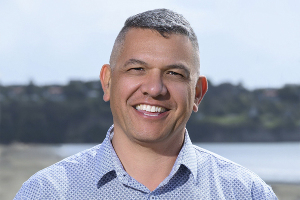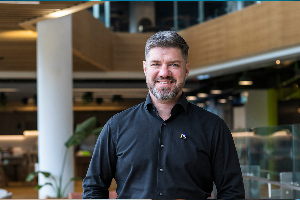
The Wellington-based firm specialises in managing investments for customers nearing 65 and those transitioning from retirement saving to retirement spending.
It works with select independent advisers and runs seminars up and down the country covering health, lifestyle and financial management information.
Lifetime founder and CEO Ralph Stewart says through these events, the firm encountered around a quarter of a million people who owned their home and had superannuation income and that’s about it.
It was with this group in mind that Lifetime developed its first home equity release product which will launch in March this year. Stewart says it has been four years in the making.
“The way traditional reverse mortgages work, you borrow from the bank and defer paying it back until you sell your house. We found Kiwis get it but hate the uncertainty - there’s a real negative halo effect. Because the income rate is so variable they don’t know how much of their home they will own. So we have adopted the European model which is – no debt.
Stewart says the product could be a first in the world because most products are designed to give people lump sums and not an income.
The product will be piloted from March 1 with 80 - 100 homes, with every participant required to have legal and financial advice. Stewart says Lifetime has around 18,000 customers; if the pilot is successful it will have 500 to 1000 homes rolling on and off with a continuous rolling balance of 500 to 1000 homes.
He says the launch was enabled by hitting the $1b AUM mark. “We’re investing people’s long term pension funds for the next 30 years and with this, a small portion, 5%-8% will be invested in residential property. So it's almost circular, those people saving get the benefit of investing in residential property and those older people in their homes get the benefit of a regular income.
“Getting to $1b has enabled us to do that. It’s a very small part of our investors’ portfolios but it allows us to get to two or three hundred homes pretty quickly.”
Lifetime is forecasting appreciation rates of 2% to 3% for residential property whereas recent experience has been three to six.
The new product is based on a real estate transaction popular in France called en viager (for the lifetime) where the buyer makes a down payment and then a series of payments for as long as the seller is alive. Research by Lifetime also turned up expressions of the model in the UK and Germany.
“We pulled it apart and rebuilt it in a different way to suit getting income out of the capital.
The road to a billion dollars
Stewart says when he began the firm in 2013, research found that people wanted a guaranteed income. Lifetime’s first product was a variable annuity - a hybrid of asset management and insurance guaranteed to earn a fixed income every fortnight for life.
Customers were initially wary but by 2018 the product began to fire, reaching around $140 million by 2020. However, the outbreak of the Covid pandemic in March stretched the product to its limit and revealed a technical error in the calculation of capital required to support the guarantee.
Lifetime worked with the Reserve Bank over the next 18 months to convert the product from guaranteed to not guaranteed.
“We told customers we can give you a 90% confidence level that your income will last until age 99.”
As a result, management fees were cut from 2.3% per annum to 1.35% and released around $18m of capital, half of which went to investors. Stewart says around 90% of the guaranteed customers stayed on without the guarantee. The other half, plus borrowings, were used to buy Aon’s Master Trust business and AMP legacy superannuation schemes.
Around this time, Lifetime launched other products such as UK pension transfer investments which also took off.
“The combination of releasing capital, providing long term income and pension income products, workplace savings products and acquisitions has got us to where we are today”, says Stewart.



